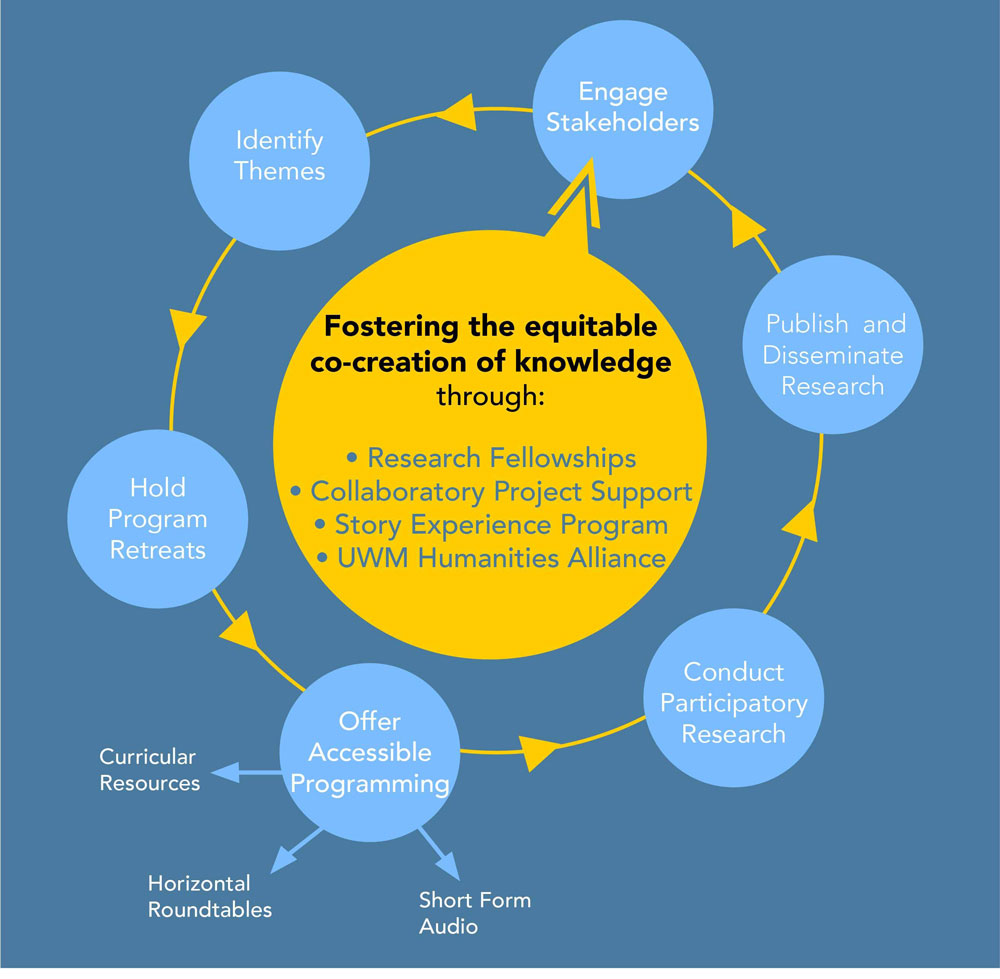Throughout its history, C21’s mission has focused on building a community of scholars to address the pressing issues of the time. Today, C21 works to bridge university and community scholars in this effort, with arts and humanities methodologies anchoring the projects coming out of these collaborations.
To do this effectively, C21 created a model to bring intentionality to the design, planning, and execution of what the Center calls the “Collaborative Knowledge Creation (CKC)” process. Community and university stakeholders take part in every step of it, which informs the creation of accessible programming that provides multiple points of access and honors multiple ways of knowing.
